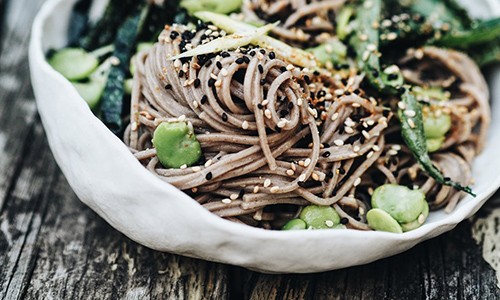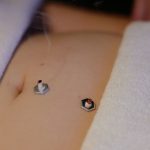 In Chinese Medicine theory our Qi, or vital energy, travels through the body’s internal organ system in a cyclic ebb and flow.
In Chinese Medicine theory our Qi, or vital energy, travels through the body’s internal organ system in a cyclic ebb and flow.
Peaking every two hours it flows from a Yin organ to the paired Yang organ and on again to the following yin organ, maintaining harmony with the energetic shifts in our external environment. Being mindful of how we eat, work, exercise and sleep in accordance with the Chinese Body Clock can help us get the most out of our day.
In the clinic we use the Chinese body clock to help determine where imbalances may lie. if you are not hungry until late morning it can be a sign of weakness or stagnation in the digestive system.
Morning 7am-9am
As we discussed in our breakfast post the best time to eat breakfast is between 7am and 9am. In the 24hour energetic clock morning this time of day is seen as Springtime. It is when our digestive strength is likened to a newborn crawling out of bed, or as a seedling pushing its head through the earth. This is the time our Stomach energy likes warm and moist foods, nothing too rich, salty or sweet. A good rule of thumb is to ask: would I feed this to a child? For breakfast porridge made with oats, rice or barley will work to strengthen the body and stimulate yang energy.

RECIPES: Congee Rice Pudding, Activated Oat Muesli, Bircher In A Jar, Porridge and Breakfast Broth.
Between 9am and 11am Spleen energy is at it’s peak, digesting breakfast and providing the body fuel for the mornings activities. This time of day is a good time to tackle difficult mental tasks and to exercise.
Lunch 11am – 1pm
Midday marks Summer in the energetic clock. Where yang is predominant and the Heart organ energy is at its peak. To be in harmony with the midday sun traditional Chinese wisdom states one should eat more pungent and hot foods with whole grains. According to the daily cycle we are now in adulthood, thus able to metabolise richer and heartier foods with small amounts of cool or raw foods for balance. Typical western lunches such as a salads or a sandwich can be too yin for many of us. If you experience bloating or fatigue after meals it is recommended to swap the raw salad for steamed vegetables, cooked whole grains and protein or have a hot broth, soup or stew.
RECIPES: Lamb Shank and Barley Soup, Annalise’s Spring Couscous or our Chinese Chicken Soup or try this vegetarian Soba Noodle Salad from Ostro.
The Small Intestine energy comes into it’s peak between 1pm-3pm this is when much of the nutrient absorption takes place. If you have eaten well during the morning and have a robust digestive system now is a good time to do physical work. However if you are convalescing or depleted this is a perfect time to take a siesta, allowing your body to absorb and process the mornings activities uninterrupted.
3-5pm is the time of the Bladder when metabolic wastes move into the kidney’s filtration system. This is a good time to study or problem solve. If you experience a late afternoon slump it is likely due to a lack of ‘fuel’ or your body struggling to digest what it has been given. A light snack and a herbal tea should do the trick.
Dinner 5pm – 7pm
By our evening meal we have reached Autumn and are entering Winter where Yin is prominent. Now is the time to wind down from the days work and gently nourish the body.
The Kidney energetic is at its peak between 5:00and 7:00pm when we are ideally having our evening meal. The Kidney energy is responsible for supporting us into old age and maintaining our youth and vigour. If you are still working and stressed during these hours take a minute for a cup of miso soup. This can give your Kidneys the support they need and prevent the slide into adrenal fatigue.
The evening meal is a likened to a celebratory harvest, nourishing, light and fresh. Enjoy baked or roasted meats and fish with cooked vegetables, grains or legumes.
RECIPES: Crispy Roast Chicken, Mushroom, Lentil and Chestnut Stew, Bettroot Rissotto

From 7pm-9pm the Pericardium energy is predominant. This is the time for lighthearted entertainment or activities that brings happiness and joy to the Heart. At 9pm-11pm the San Jiao’s energy rises. The San Jiao is an esoteric concept of a network that links all aspects of our body together. Now is the time for sleep, allowing the San Jiao to bring the day’s nutrients to the body, encouraging recovery and repair in preparation for a new day.






